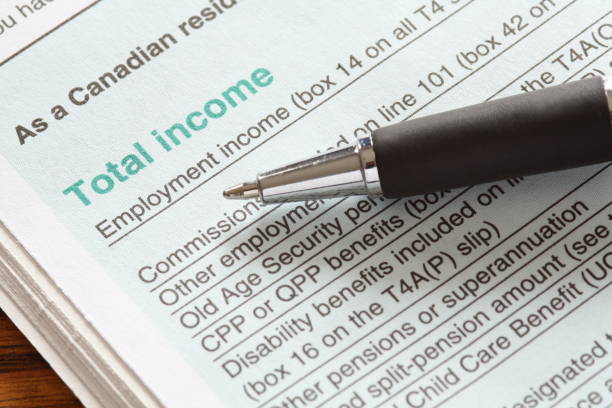Canadian Tax Advice for Freelancers

Canadian Tax Advice for Freelancers – The world of taxes can be particularly daunting for freelancers in Canada. Unlike traditional employees, freelancers are responsible for managing their own tax obligations, which can lead to confusion and potential pitfalls if not handled correctly. This article aims to provide essential Canadian tax advice for freelancers, ensuring you understand your responsibilities and can maximize your deductions while minimizing your tax burden.
One of the first pieces of Canadian tax advice for freelancers is to understand your tax obligations. As a freelancer, you are considered self-employed, which means you must report your income and expenses on your personal income tax return (T1 form). You need to keep track of all income earned from freelance work, as well as any expenses incurred in the course of doing business.
Read: How Swift Relocation to Canada as Electronics Engineer 2025 Works
Income Reporting
All income earned must be reported, regardless of whether you received it in cash or through electronic means. The Canada Revenue Agency (CRA) requires that you report your gross income, which includes all payments received before any deductions. This is crucial because failing to report income can lead to penalties and interest charges.
Deductions and Expenses
Another vital aspect of Canadian tax advice for freelancers is understanding what expenses you can deduct. As a self-employed individual, you can deduct various business-related expenses that help reduce your taxable income.
Common Deductions
Some common deductions include:
Home Office Expenses: If you work from home, you can claim a portion of your rent or mortgage interest, utilities, and internet costs based on the size of your workspace relative to your home.
Supplies and Equipment: Any materials or equipment purchased for your freelance work, such as computers, software, or office supplies, are deductible.
Travel Expenses: If you travel for work, expenses such as transportation, lodging, and meals can be deducted.
Professional Fees: Fees paid to accountants or legal advisors for business-related services are also deductible.
Keeping detailed records of all expenses is crucial for substantiating your claims during tax season.
GST/HST Registration
A significant piece of Canadian tax advice for freelancers involves understanding Goods and Services Tax (GST) and Harmonized Sales Tax (HST) registration. If your total taxable revenues exceed $30,000 in a calendar year, you are required to register for GST/HST. This means you must charge this tax on applicable services and remit it to the CRA.
Collecting and Remitting GST/HST
Once registered, you’ll need to collect GST/HST from your clients and remit it to the CRA quarterly or annually, depending on your revenue. However, being registered also allows you to claim input tax credits (ITCs) on GST/HST paid on business expenses, which can significantly reduce your overall tax liability.
Filing Your Taxes
When it comes time to file your taxes, having a solid grasp of deadlines is crucial. Freelancers in Canada must file their personal income tax returns by April 30th each year. However, if you or your spouse/common-law partner is self-employed, the deadline extends to June 15th; keep in mind that any taxes owed are still due by April 30th.
Tax Software vs. Professional Help
Using tax software designed for self-employed individuals can simplify the filing process significantly. Many programs guide users through deductions specific to freelancers and ensure compliance with CRA regulations. Alternatively, hiring a professional accountant familiar with freelance taxation can provide peace of mind and potentially uncover additional deductions.
Keep Accurate Records
One of the most important pieces of Canadian tax advice for freelancers is the necessity of maintaining accurate records throughout the year. This includes keeping receipts for all business-related purchases and maintaining a log of income received.
Organise Your Records
Consider using accounting software or spreadsheets to track income and expenses regularly. This not only simplifies the filing process but also helps in monitoring cash flow throughout the year. The CRA recommends keeping records for at least six years after filing your return in case they require further information.
Plan for Taxes
Tax planning is an essential strategy that freelancers should adopt early on. Setting aside money throughout the year specifically for taxes can alleviate stress when payment deadlines approach.
Estimated Tax Payments
If you anticipate owing more than $3,000 in taxes (or $1,800 if you’re a resident of Quebec), consider making quarterly estimated tax payments to avoid large lump-sum payments at year-end. This proactive approach ensures that you’re financially prepared when tax season arrives.
How can I maximize my Deductions as a Freelancer in Canada
To maximize your deductions as a freelancer in Canada, consider the following strategies:
1. Keep Detailed Records: Maintain accurate records of all income and expenses. Use accounting software to track transactions and save receipts for all business-related purchases.
2. Claim Home Office Expenses: If you work from home, you can deduct a portion of your rent or mortgage, utilities, and internet costs based on the size of your workspace.
3. Deduct Business Supplies and Equipment: Expenses for necessary supplies, equipment, and software are deductible. This includes computers, office supplies, and tools.
4. Utilize Travel Deductions: Business-related travel expenses such as transportation, lodging, and meals can be deducted. Keep detailed records of the purpose of each trip.
5. Professional Fees: Deduct fees for professional services like legal advice, accounting services, and membership dues for professional organizations.
6. Separate Business and Personal Expenses: Use dedicated bank accounts for your freelance work to simplify tracking and avoid mixing personal expenses with business ones.
7. Consider Capital Cost Allowance: For larger purchases like equipment or vehicles, utilize capital cost allowance (CCA) to deduct a portion of the cost over several years.
8. Stay Informed on Tax Regulations: Regularly review CRA guidelines to ensure you’re claiming all eligible deductions and complying with tax laws.
Conclusion: Empowering Your Freelance Career with Knowledge
In conclusion, understanding Canadian tax advice for freelancers is essential for maintaining compliance with CRA regulations while maximizing potential deductions. From knowing what expenses are deductible to understanding GST/HST registration requirements and keeping accurate records, being informed empowers freelancers to navigate their financial responsibilities confidently.
By implementing these strategies and seeking professional assistance when necessary, freelancers can focus more on their creative pursuits while ensuring their financial health remains intact. Embrace this knowledge as part of your freelance journey—after all, informed decisions lead to greater success!






